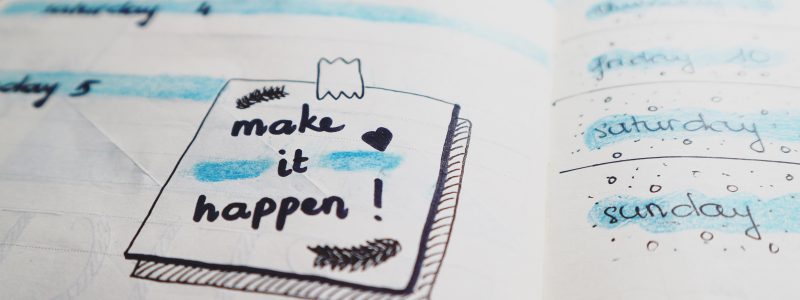
When you want to lose weight or make changes to improve your health, most people set a goal and jump into action. Whilst goals are useful, are they enough? Where people often slip up is that they lack a system.
Goals are good, especially if they are SMART, but systems have many advantages. They help you develop habits that go beyond your goals.They keep you open to new opportunities, you are not just hell-bent on making that one goal. After all, we have no control over the future, though we like to think we do. Finally, a system also helps you focus on the present. Some goals can also do this, but many don’t. Read my article on present-focused goals here.

So what does a system towards better health actually look like. The following is a tried and tested, simple 5-step system that will help you focus on the present moment and on the things you want to do every day.
These are the 5 steps of the system
Learn
Decide
Plan
Make ONE change
Reflect
Let’s look at each of these in turn.

1. Learn
When it comes to improving your health, you know that you want to make a change, but what exactly do you change? Naturally, most people turn to their friends or colleagues for advice, and when they are told about a certain diet or the benefits of say, joining a gym, they jump right in.
But if you do this, you are a blind novice, often following the advice of other blind novices. You have a small percent chance of succeeding and a massive percent chance of falling flat on your face!
What’s more, we now know that every body is different and metabolises food in different ways; our genetics, microbes, and likes are all different. What worked for your friend won’t necessarily work for you.
For many, restricted diets lead to frustration, demotivation and giving up. Many put on more weight than they originally had. Likewise, without getting expert advice about how to work out at the gym, injuries can follow.
The most important first step, and often over-looked one, is to learn more about what you are going to change, be it food, exercise of anything else. I am not talking about taking a mini-degree here, but learning just enough. Learning leads to knowledge, and with enough knowledge you become empowered.
When you know what is good for you, how to evaluate sources of nutritional information, how to change your habits, how to motivate yourself, then you can make informed decisions.
Investing time and energy in learning, empowers you to make better decisions for you, as well as making you a pretty cool person who knows more than most of your friends about nutrition and health!

2. Decide
When you proactively decide to do something, you unleash great power and energy. Until you make a full commitment and decision to make a change, you risk loitering in the zone of maybe-doing-something-tomorrow-but-then-again-maybe-not. That’s not going to be very effective.
Deciding is so simple that it is often neglected. When you decide what to change and really ‘decide’, not just think about it, then you will be on the road to success.
In order to improve your health, I would recommend not only taking a decision about what food or diet to change, but I would also make a change around exercise and fitness, as well as mindset (what some may also call spirituality).
There is significant research that shows health is not just about diet, but is also strongly influenced by our wider lifestyle, including the exercise we do, and also our mindset or spirituality*[1]

3. Plan
When we plan, we need to consider goals, activities and results.
Whilst the trend is to set SMART goals, I am more an advocate of present-focussed goals that root us in the now, give us a daily focus and reward.
Basically, present focused goals look at a mini-system of what we will do everyday; for example,
I will do 30 minutes of cardio/aerobic exercise everyday
The goal and the activity are the same. This focus on the everyday, rather than a hopeful future, gives a continuous feed of powerful motivation.
With present-focused goals, you will find that your goal, activities and rewards (results) are aligned. In the world of education this alignment makes learning much stronger and more successful. I believe it is a model we can equally apply to achieving health goals.

4. Make ONE change
Now you have started learning, decided what to change (maybe adapt your diet or start jogging), and what’s more you have a plan, it’s full steam ahead.
Well almost! Let me hold you back for just a moment, it will be worth it.
As we start learn new things, we often come up with lots of new ideas, and so we plan to make lots of changes. A new diet, do some yoga, join the gym, start meditating every evening before bed, and so on. It all sounds great, except for the Russian proverb – if you chase two rabbits, you will not catch either one!
In his book, One Thing, Gary Keller gives compelling evidence that focusing on one thing is the most effective way to high productivity. When setting your goal for this year, this month, this week and even right now; we should always be thinking – what is the one thing I can focus on that will make the biggest difference; and then just do that one thing. Nothing else.
Anything else will distract us, and lead us to not getting anything done. At least not done well.
Likewise, when you come to decide and plan what to change to improve your health, focus on one thing, the one thing that will make the biggest difference. Then, just do that one thing. Once it becomes a habit, then you may want to introduce more changes, new ideas, but to begin with, narrow your focus.

5. Reflect
The final and in someways most crucial step in the system, is reflection. This is the secret to all learning, to high productivity, and to personal and professional development.
As you make your changes, focus on your system and measure your success, take time (daily or weekly) to reflect on what you are doing, and whether it is working for you.
If it is, great. If you feel you are going up and down; then take stock and consider whether this is just part of the natural cycle of things. No one ever continually improves going up and up; not even olympic athletes. We go up three steps, drop down one or two. So long as the overall direction is upwards, then that’s ok. In fact, that would be expected.
It’s a bit like the Dow Jones index, or house prices, they are always going up and down, but overall, the trend is up.

If the trend is not up, then you need to reflect on what is happening. It may be you are not making the right change for you, or you have the wrong goals. It could be a number of things, so the important thing is to take time to reflect and consider what to do next. Be prepared to change your plan, if you realise it is not working for you.
Summary
By learning, deciding, planning, focussing on one thing and then reflecting, I have changed a number of important things in my life, including setting up and running a teacher’s club for 4 years which led me to landing my dream job at that time; learning Chinese, starting and completing a Masters degree in my forties; and improving my health with more exercise and a healthier relationship with food.
Not only myself, but hundreds of people I have trained have used this system in their personal and professional development to help them get the results they want. I am confident it can also take you closer towards better health, if that is where you want to go.
*[1] research on spirituality is difficult as it means different things to different people. For example the use of church attendance as a measure of spirituality in research, may not be representative for some. However, I include it because it is an area of interest, but one that is quite limited when it comes to scientific research.
